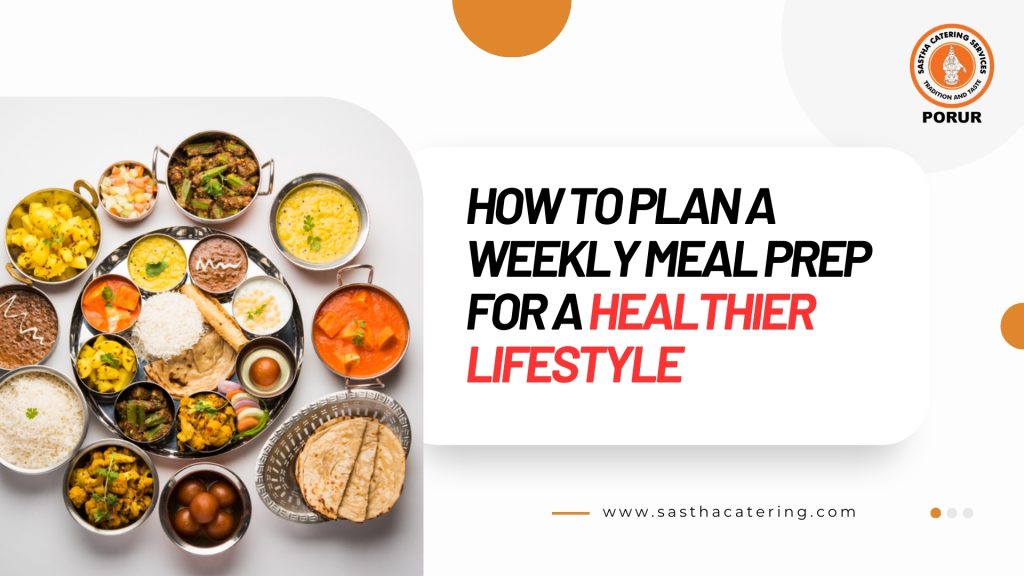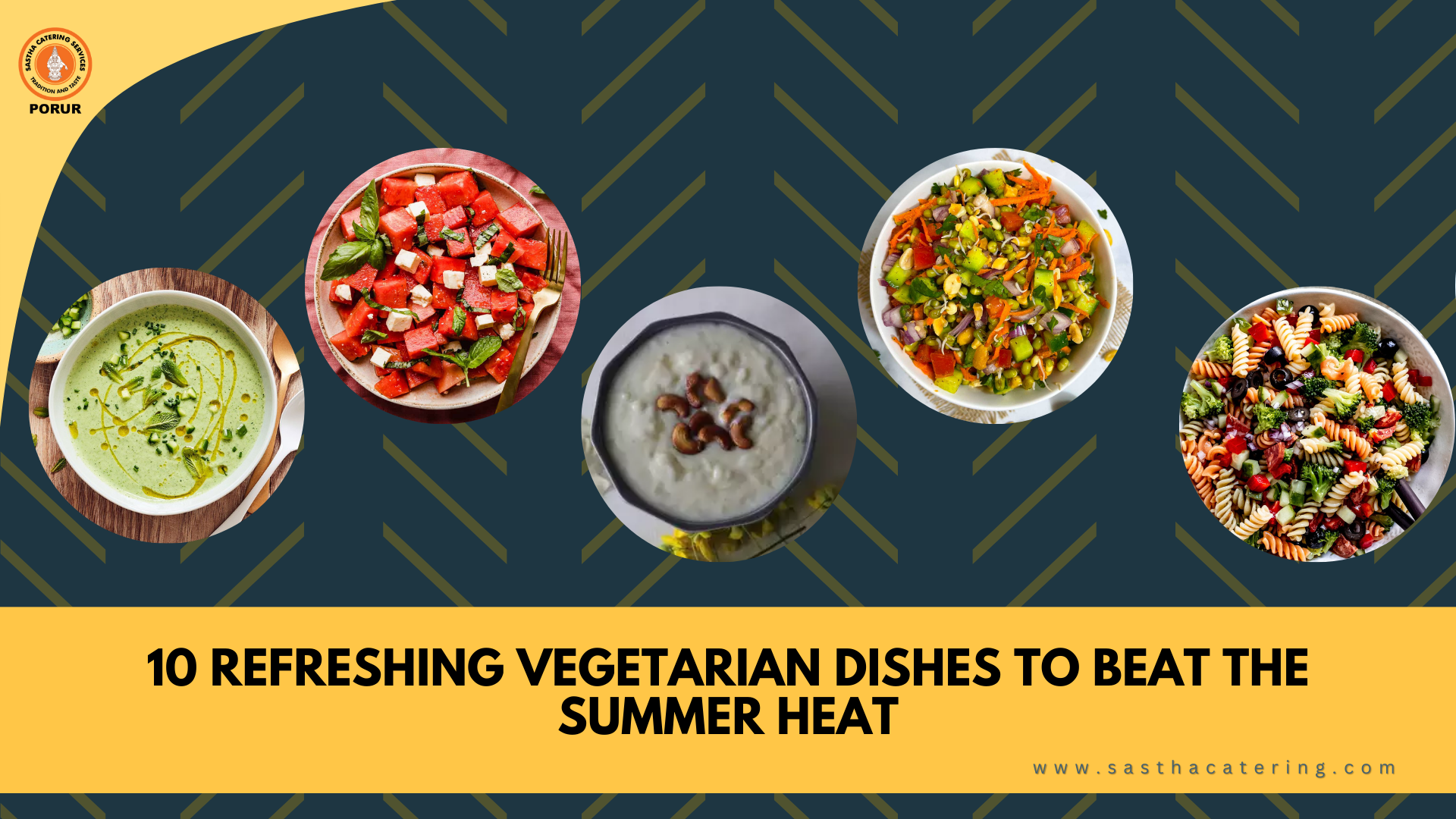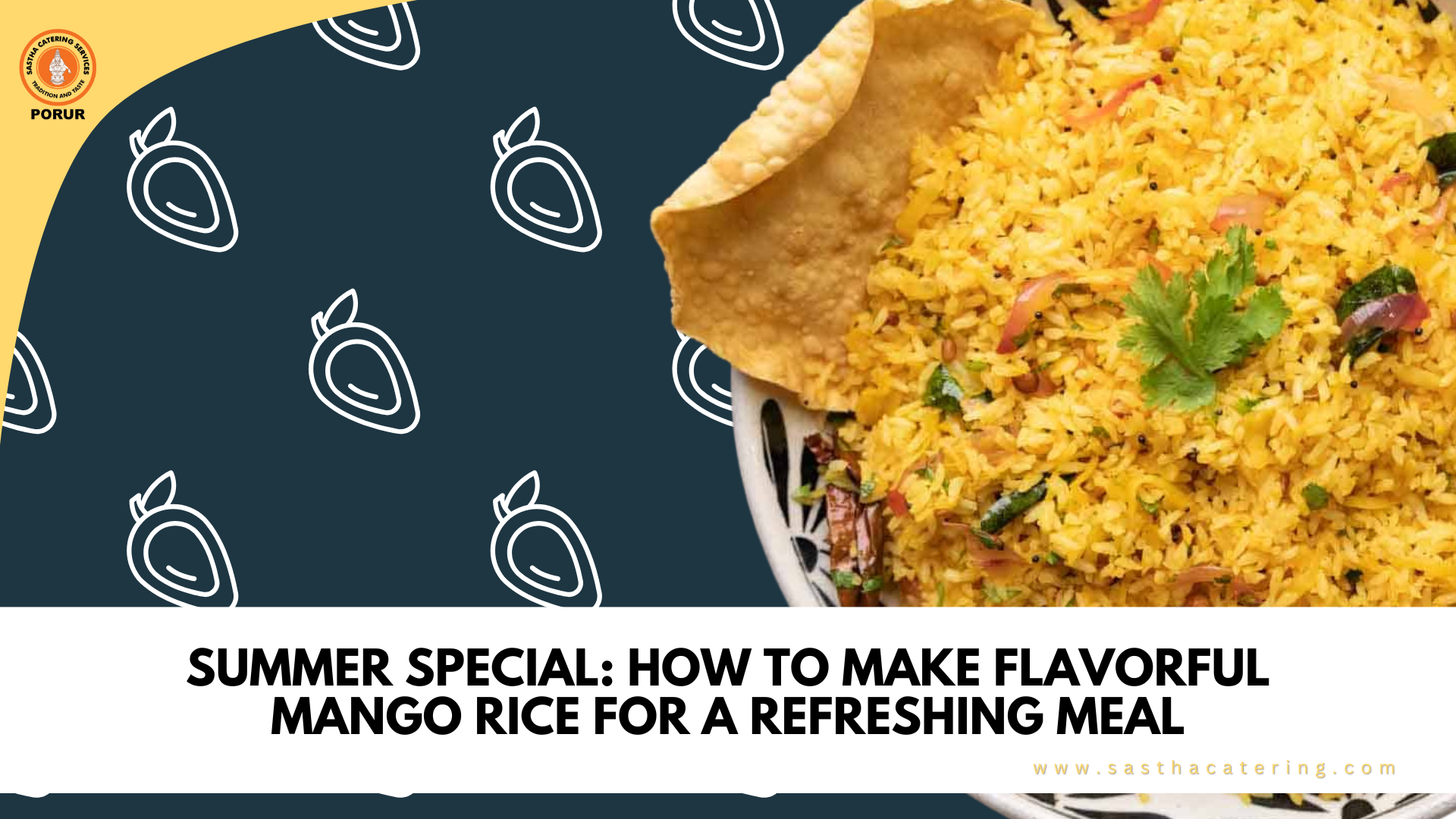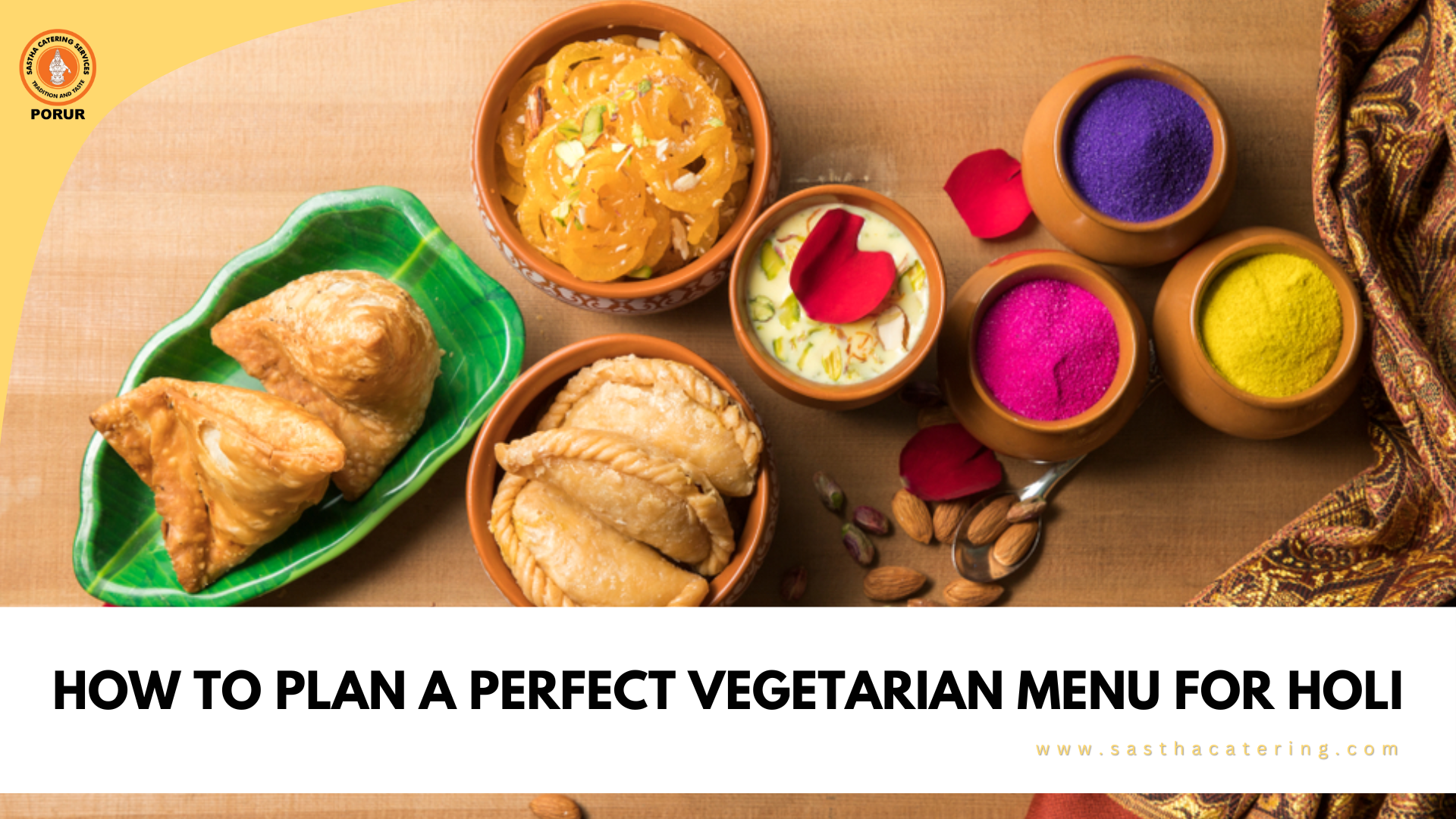
Eating healthy doesn’t have to be complicated or time-consuming. Planning and prepping your meals ahead of time can help you make better food choices, save time during the week, and lead to a healthier lifestyle. If you’re someone who enjoys home-cooked meals, especially traditional vegetarian dishes from southern India, meal prepping can be a game-changer.
Whether you’re a busy professional, a parent, or someone simply looking for a more organized lifestyle, adopting a weekly meal prep routine can simplify your life. For those in Chennai seeking fresh, healthy, and delicious meals, catering services in Chennai offer an excellent solution for maintaining a nutritious diet without the hassle of cooking every day.
Here’s a simple guide to help you plan your weekly meal prep for a healthier and more organized lifestyle.
1. Understand Your Nutritional Needs
Before you dive into meal prepping, it’s important to understand your nutritional needs. The southern Indian diet typically includes a lot of rice, lentils, vegetables, and fruits, which are all rich in essential nutrients. Your meals should consist of the right balance of carbohydrates, proteins, fats, and fiber. Focus on:
- Carbohydrates: Opt for whole grains like brown rice, quinoa, or millet.
- Proteins: Include lentils (dal), chickpeas, tofu, paneer, and green leafy vegetables.
- Fats: Use healthy fats like coconut oil, ghee, or olive oil in moderation.
- Fiber: Vegetables, fruits, and legumes should form a major part of your meals.
2. Plan Your Meals
Planning is the most important step in meal prepping. Spend some time on the weekend (or any day off) to plan your meals for the upcoming week. A good idea is to plan for breakfast, lunch, dinner, and snacks. Try to pick meals that are easy to prepare and can be stored for a few days.
For example:
- Breakfast: Idli with coconut chutney, upma, or vegetable poha.
- Lunch: Sambar with rice, rasam with vegetable curry, or curd rice.
- Dinner: Vegetable stir-fry with roti, or a simple dal with chapati.
3. Make a Grocery List
Once you’ve planned your meals, create a grocery list of everything you’ll need. Include fresh vegetables, fruits, spices, and grains, as well as any packaged products like spices, legumes, and condiments. Make sure to buy seasonal and locally available ingredients to keep your meals fresh and cost-effective.
Tip: Buy in bulk for non-perishable items like rice, lentils, and grains, as it will save money in the long run.
4. Batch Cook and Prep Ingredients
Meal prepping is all about efficiency. To save time, batch cook as much as you can. Here’s how:
- Rice and Grains: Cook large quantities of rice, millet, or quinoa and store them in airtight containers. You can use them throughout the week.
- Lentils and Beans: Cook your dal, chickpeas, or kidney beans in bulk and store them in the fridge. They will stay fresh for up to 3 days.
- Vegetables: Chop your vegetables in advance and store them in separate containers. You can even pre-cook certain veggies like carrots, beans, or bottled gourd for quicker meal preparation.
- Snacks: Prepare healthy snacks like roasted peanuts, makhana, or fruit chaat and store them in containers for a quick snack.
5. Use Containers for Easy Storage
Invest in quality airtight containers that can store your prepped meals. Glass containers are ideal as they help maintain the freshness of food. Label your containers with dates to avoid confusion. For example, keep your rice and dal in separate containers and store them in the fridge for easy access.
Tip: Portion out your meals to only take what you need. This helps with portion control and ensures that your meals last longer.
6. Keep It Simple
Meal prepping doesn’t have to be complicated. Stick to simple recipes that require minimal cooking time. For instance, a simple vegetable stir-fry or dal can be made in 20-30 minutes. Avoid complicated dishes that may require too many ingredients or steps. The goal is to make healthy eating easy and convenient.
7. Incorporate Local Flavors
Being from southern India, it’s essential to keep the local flavors in mind while planning your meals. Incorporate spices like mustard seeds, curry leaves, turmeric, and tamarind for that authentic taste. These spices not only enhance the flavor but also have several health benefits like improving digestion and boosting immunity.
8. Stay Consistent
The key to meal prepping is consistency. Once you get into the habit, it will feel like second nature. Make meal prepping a weekly routine, and you’ll notice how much easier it is to maintain a healthier lifestyle.
Conclusion
Meal prepping is an excellent way to stay organized and maintain a healthier lifestyle. By planning your meals ahead of time, cooking in bulk, and using the right ingredients, you can ensure that you’re eating nutritious, home-cooked meals all week long. The next time you want to skip the hassle of cooking, just open your fridge and grab your prepped meals for a quick, healthy option.
By incorporating meal prepping into your routine, you can create a sustainable habit that supports your health and wellness goals. So, roll up your sleeves, head to the kitchen, and start your weekly meal prep today!
If you’re looking for a helping hand with meal prepping or catering for an event in Chennai, many catering services in Chennai specialize in vegetarian, traditional, and healthy meals to suit your needs.




!["Guests being served vegetarian buffet at an event in Chennai, highlighting the popularity of veg catering services. [Sastha Catering]"](https://sasthacatering.com/blog/wp-content/uploads/2025/03/Healthy-Food-Initiatives-18.png)





